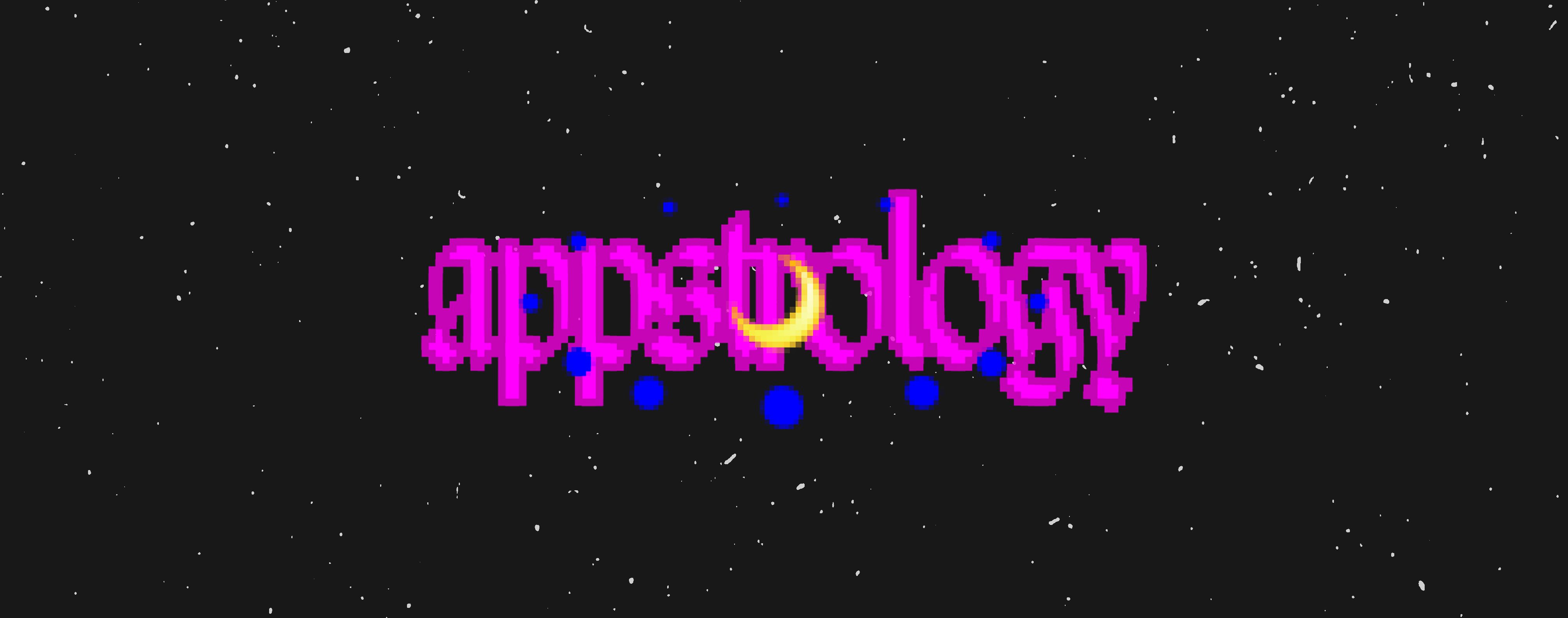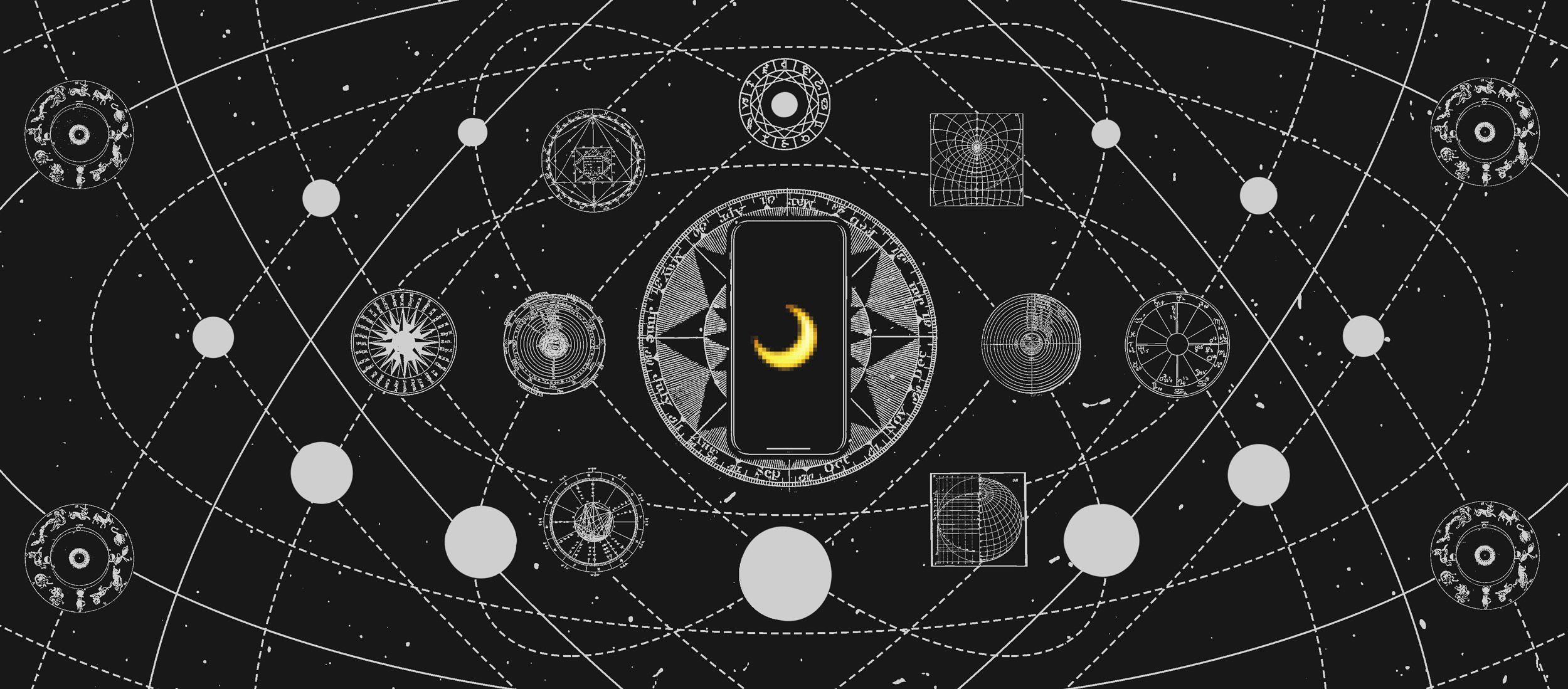
Since it launched in late 2017, astrology app Co-Star has garnered more than 5 million registered users. It’s been covered in Vogue, Vanity Fair, and Newsweek, touted for its gripping black-and-white interface, AI technology that crunches NASA data, and the honest, sometimes rude, nature of its readings.
But Co-Star isn’t the only app in town. The Pattern was plugged by Channing Tatum and blew up on social media. The DailyHoroscope has a whopping 36,000-plus reviews on Apple’s app store. And Sanctuary, which went live last January, had accumulated 210,000 users by July, many paying $19.99 a month for the ability to use the app. These numbers seemingly signal a resurgence—or certainly, a continued commitment––to exploring life through our perception of the stars.
Astrology dates back some 2,400 years, when Babylonians developed horoscopes, or natal charts calculated by birth data that astrologers use to infer a person’s character and forecast their life events.
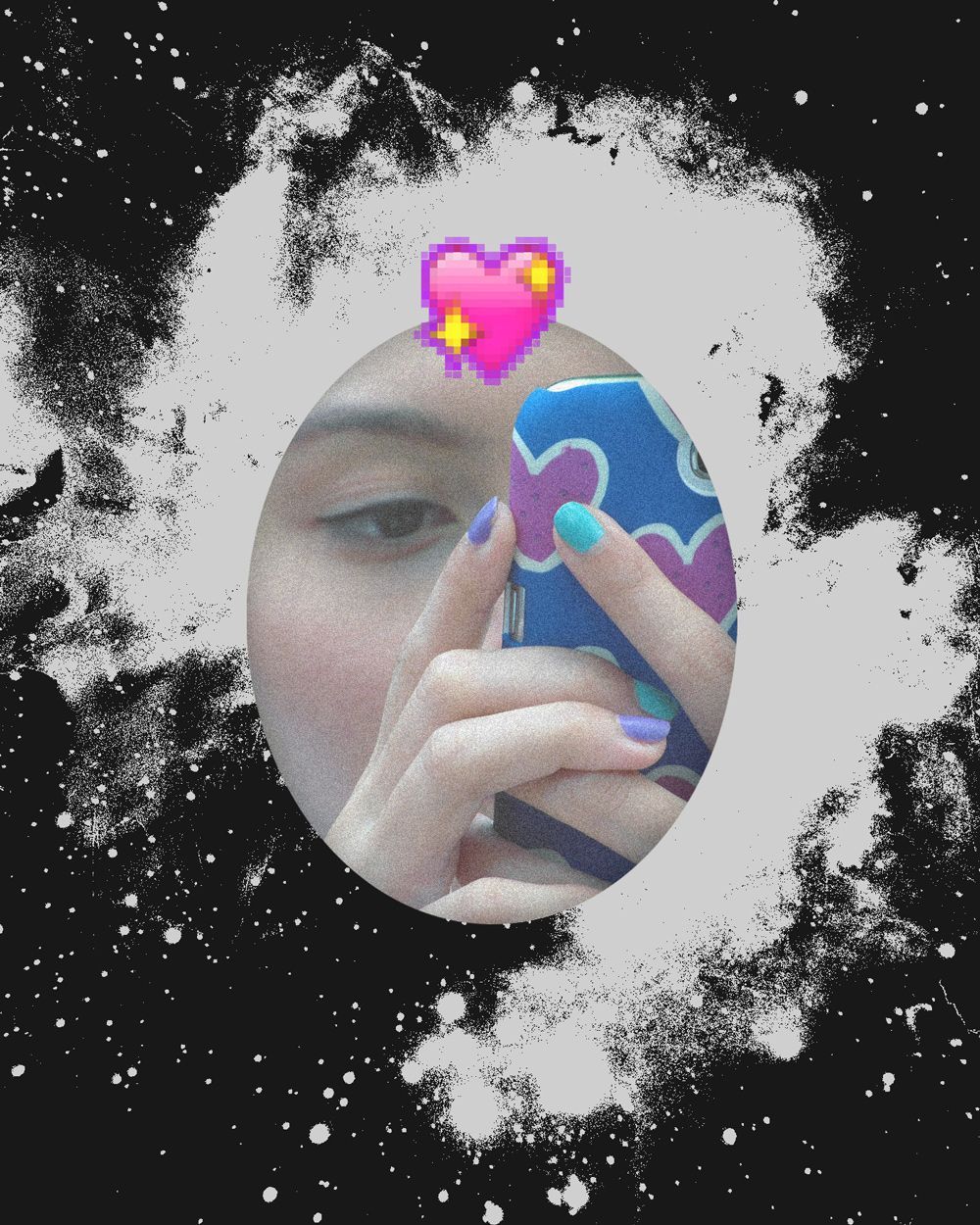
Today, astrology apps attempt to do everything from predict when it’s time for a promotion to advising on relationships, romantic or otherwise. Take this recent Co-Star horoscope for Capricorns: “You can use drugs to run away from reality. You can also use people. You don’t have to stop having relationships, but you do have to stop thinking about people as a way out.”
Most astronomers, the scientists determining whether Mercury is actually in retrograde or Venus is in Aquarius, find the fascination with astrology mildly amusing. When used for entertainment—the same way we read a fiction novel—astrology, they say, is mostly harmless.
But in 2012, almost a decade before mobile astrology apps boomed and reading the stars became a $2 billion tech business, about half of Americans believed that astrology was based on science. And with apps such as Co-Star promoting their use of (public) NASA data to create readings, astronomers are increasingly concerned people aren’t just having fun; they’re taking these readings to heart.
“In isolation, astrology apps are as benign as a Magic 8 ball,” says Konstantin Batygin, planetary sciences professor at the California Institute of Technology. “They are just digital toys. But when taken seriously by its users, [astrology] may lead to decision-making that is questionable at best.”
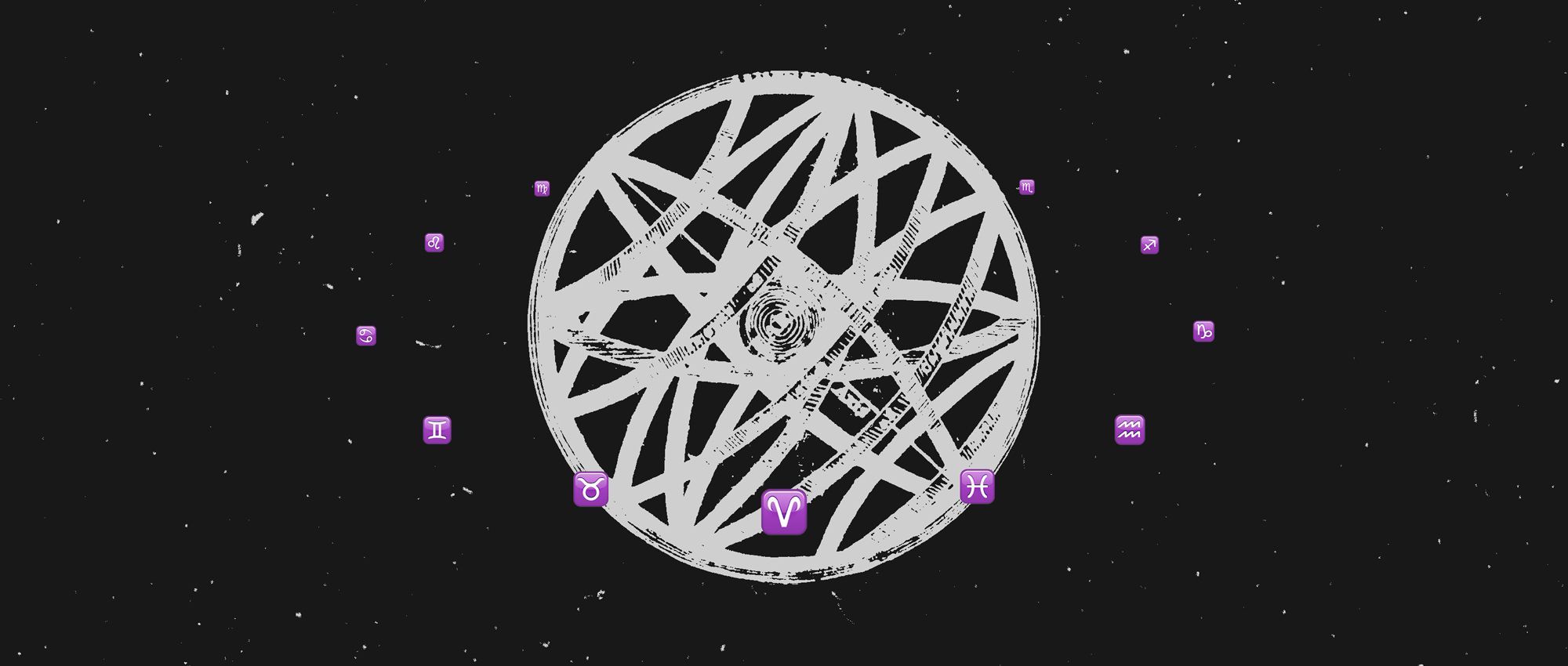
The astronomers Supercluster spoke to think most people who engage in astrology and read horoscopes don’t take them as a proverbial gospel truth. But when astrology portrays itself as science—or as backed by scientific data—the astronomers feel there is some cause for concern.
Andrew Fraknoi, an astronomer and author, including Astronomy, points to a 1985 study that examined the accuracy of horoscopes. (Though dated, this study is still relevant, Fraknoi says, and is one of the most comprehensive astrological studies available.) In this study, astrologists were asked to construct horoscopes for 196 volunteers who provided the information necessary to create those horoscopes. Those volunteers also completed a personality inventory.
The horoscopes were then divided between 28 professional astrologists, who were given one horoscope and three personality profiles—one of which belonged to the subject of the horoscope.
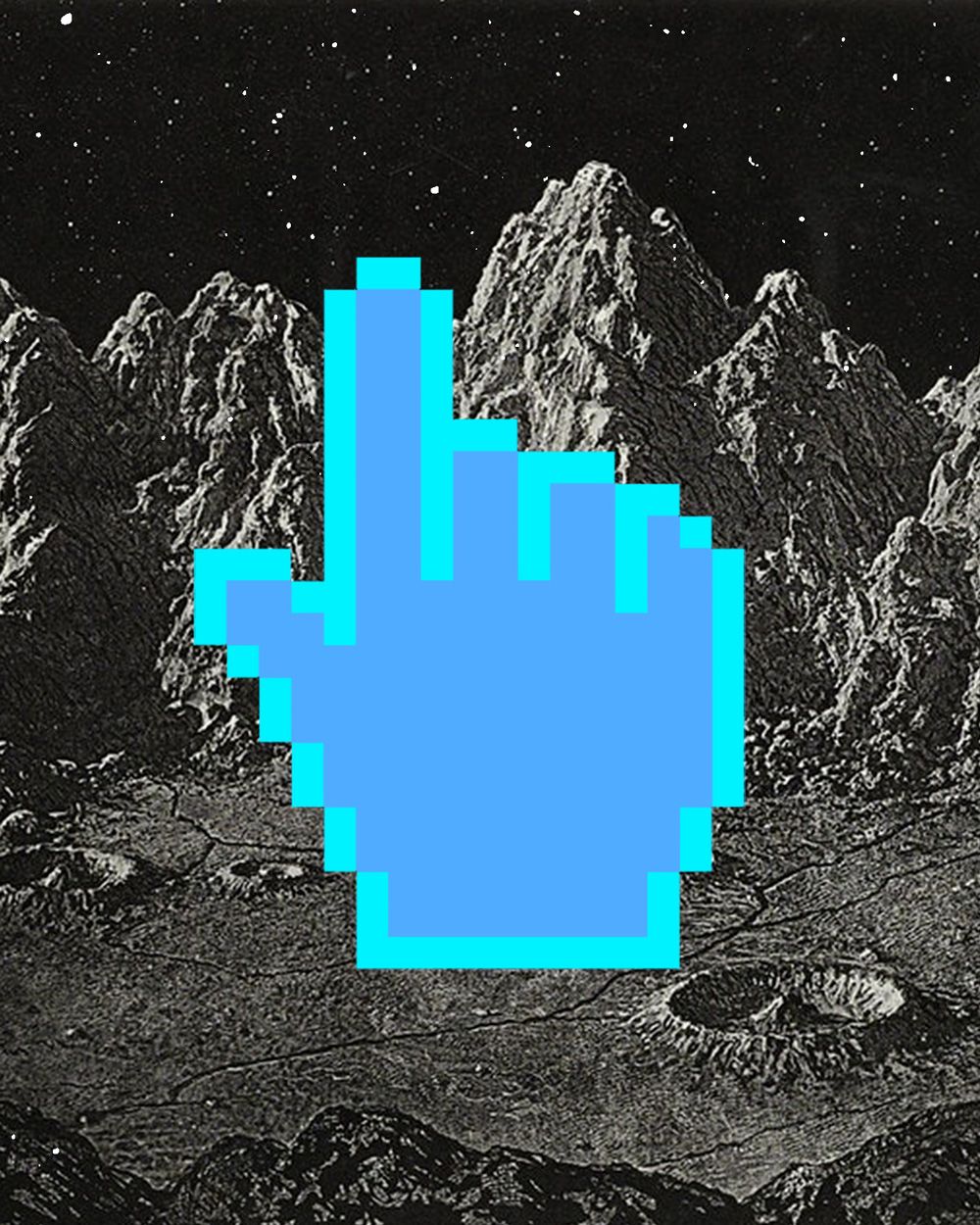
The astrologists predicted they would be able to match 50 percent of the horoscopes accurately—a rate that didn’t impress scientists, Fraknoi says. “If I were a surgeon and I [did] brain surgery and I do it well one out of two times, I would not be a very impressive professional,” he explains.
However, the astrologists only made a correct match 30 percent of the time, or the rate of chance.
“Because of [tests like this], which astrology has consistently failed time and time again, we can say that this is a science with no experimental basis,” Fraknoi says. “Not only is there no theory of astrology—no idea why the planet Mars should somehow be involved with your love life or your destiny—but there's no experimental proof. If every experiment failed, you would not get the Nobel prize or published. You only get credit if experiments show what you're doing works.”
Mike Brown—the California Institute of Technology astronomer who discovered Eris—says that his wife regularly reads her horoscope not from an app, but from the local newspaper. It’s a harmless habit Brown says he can understand: Years ago, he judged the health of his relationship based on the weather he experienced when he was at his telescope. “It's a natural human habit to try to understand patterns and see what's causing things,” Brown explains.
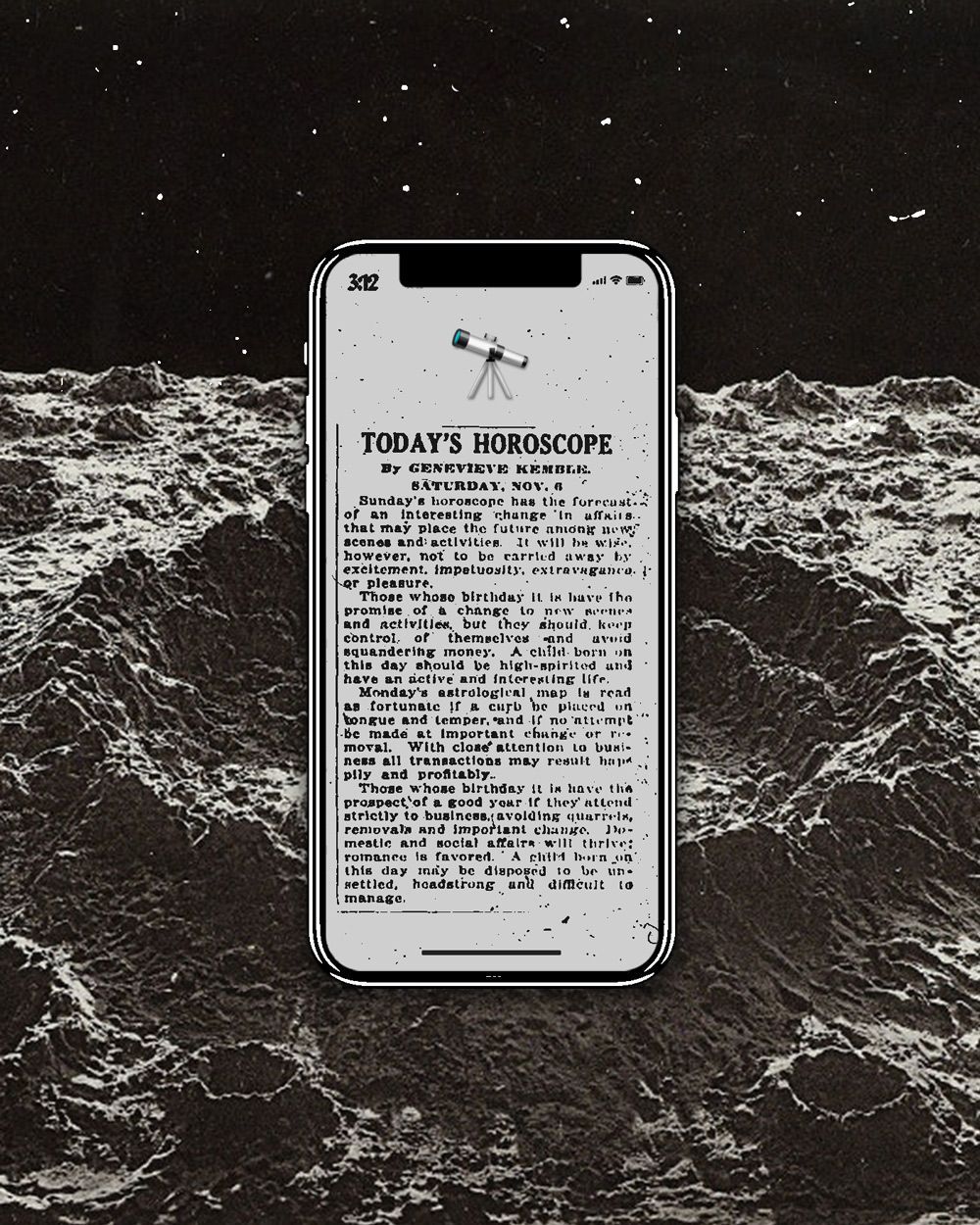
“And we find these patterns everywhere—even when they're not true. I don’t fault people for looking for patterns.”
But, Brown continues, “if people really believe it, then I do find that a little crazy.”
And Batygin believes even casual use of astrology, in some ways, can be harmful. “Science is intriguing and interesting in its own right,” Batygin says, “and I believe astrology—just like a belief in a flat earth— distract the public from the actually captivating aspects of astrophysics.”
Batygin says those who use astrology apps should do so cautiously. “Users of astrology apps should not simply take the information with a grain of salt—they should not take it seriously at all,” he says. “Users should realize that at the end of the day, the decisions they make are theirs alone and have nothing to do with what is visible in the night sky. And similarly, the external events that happen in one’s life are not controlled by the ephemerides of the solar system.”
